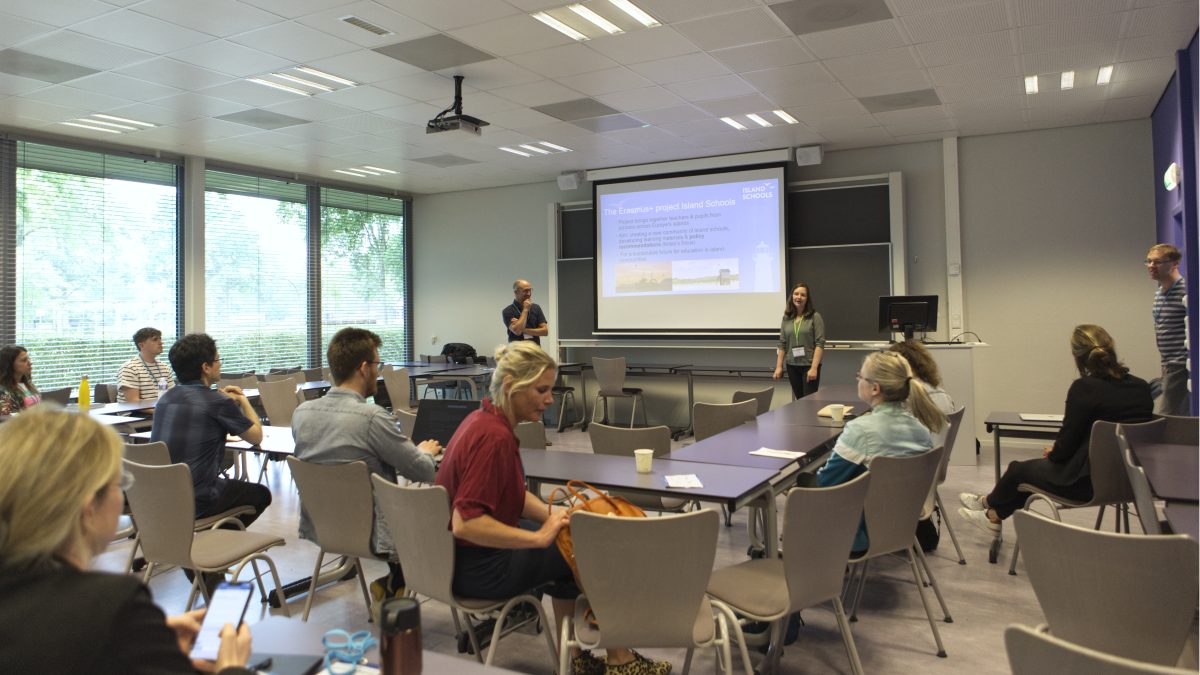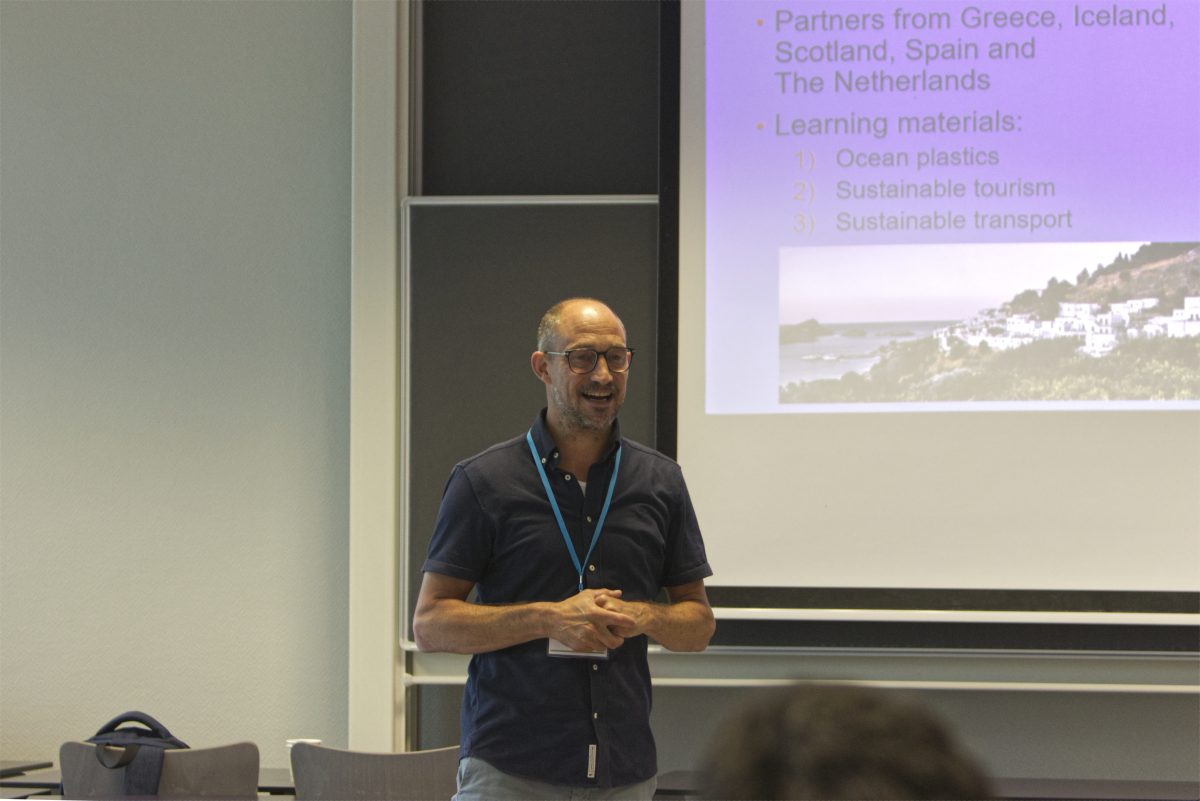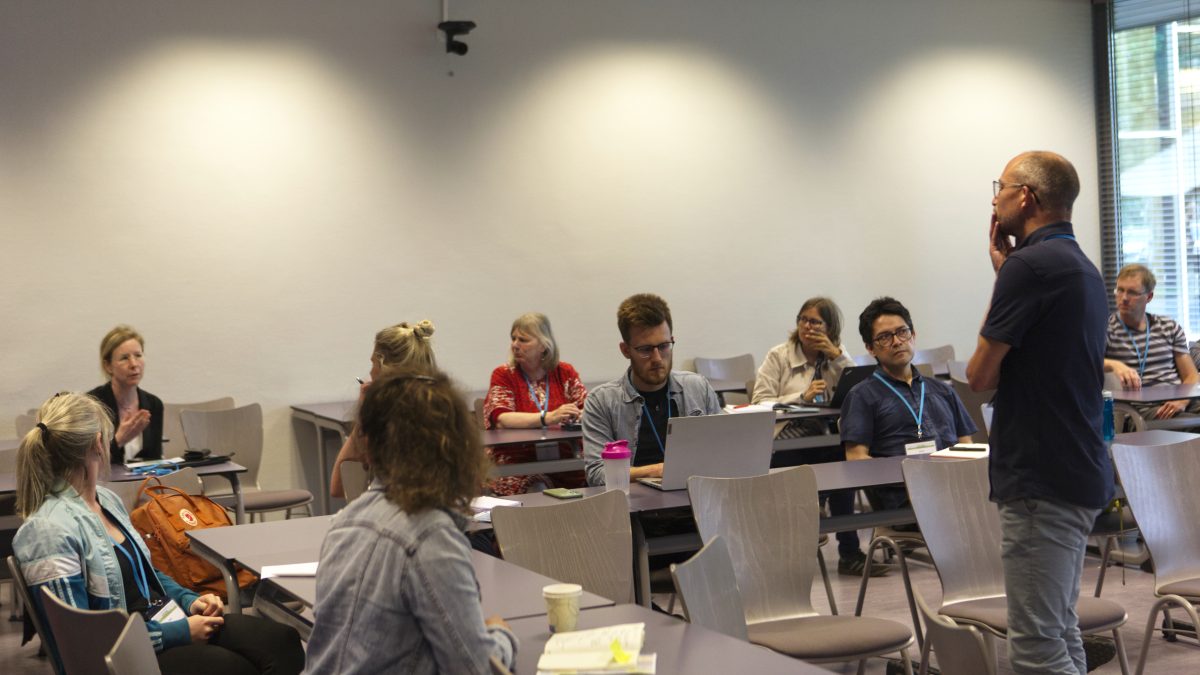Island schools and Island proofing
Island schools play a leading role in island community life and have a strong position to keep islands “alive.” However, island schools have specific challenges too, especially in the European context. That’s why Christina Rundel and Thijs Speelman work to unify Island schools across Europe to enable teachers and pupils to learn from one another, voice their unique and shared challenges, and make a case for “island proofing” policymaking.
Education for Island schools
For this project, Rundel and Speelman have created a community of island schools. In addition, they have developed and tested island specific learning materials based on the EU’s sustainable development (STD) goals.
For example, by taking pupils to the beach to study the ocean plastics, schools on different islands can work on the same challenges and show their pupils how the EU’s STD goals impact their direct environment and livelihoods. The same methodology is applied to more sustainable forms of tourism and transport. While their work is island focused, Rundel and Speelman share their results so the mainland can benefit from it as well.
Island Schools connects European Islands to learn and tackle challenges for a sustainably prosperous future
Island policy
Today’s focus is on drafting policy recommendations that foster a more sustainable future for education in Island communities. Mobility is for instance a limiting factor that is shared by all island schools, for while the Ferry to Vlieland takes “only” 2,5 hours, ferries in Greece can take up to 10 hours. Other shared challenges are outmigration of the youth/ageing population, lack of affordable housing, and a decrease in physical services for citizens.
Based on their findings, Speelman and Rundel shared 4 policy recommendations:
- Flexibility in the curriculum and power to the schools: use the people that are already on the island – e.g., allowing teachers to teach both at primary and at high schools and swimming lessons given by a pupil’s parent.
- Place-based and adaptive policies: look at the individual level, for while some islands may need to facilitate housing for teachers from the mainland others have more use for a better internet connection
- More exchange and collaboration with other island schools: e.g., let teachers hop from island to island to teach at different island schools
- Specific teaching and community needs: online learning as opportunity, education for adults, and a wider role of schools in the community
Island Proofing
The session concluded with a plenary discussion and questions from the audience. During the discussion Rundel and Speelman explained how “island proofing” such as the Scottish Island Act (2018) gave a voice to island communities. This act makes policy assessments by the island community a mandatory step for approval.
Finally, Speelman extended an open invitation for students to come and do research on Vlieland. “A house in Vlieland costs €650.000, which makes it impossible for young professionals and their families to come live and work here,” Speelman explained. But “students are easier and more affordable to bring to the island, and with students we can change the island from the bottom-up”!
More info about Island Learning and Teaching Materials: https://www.islandschools.eu/results
Platform for connecting island schools across Europe: https://app-islandschools.eu


